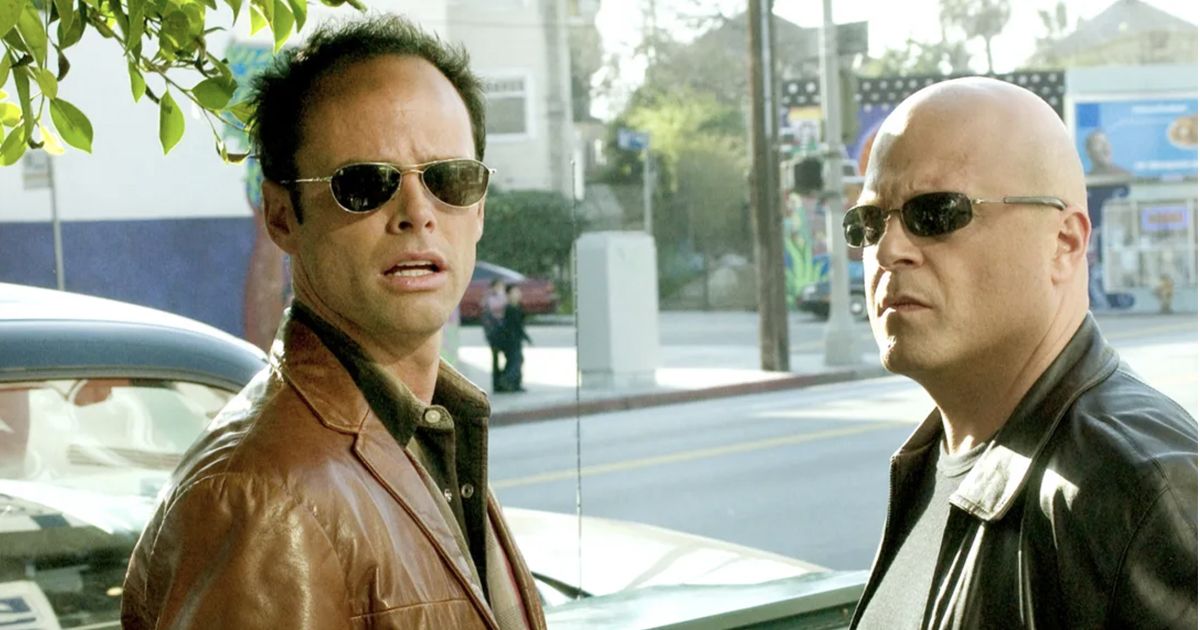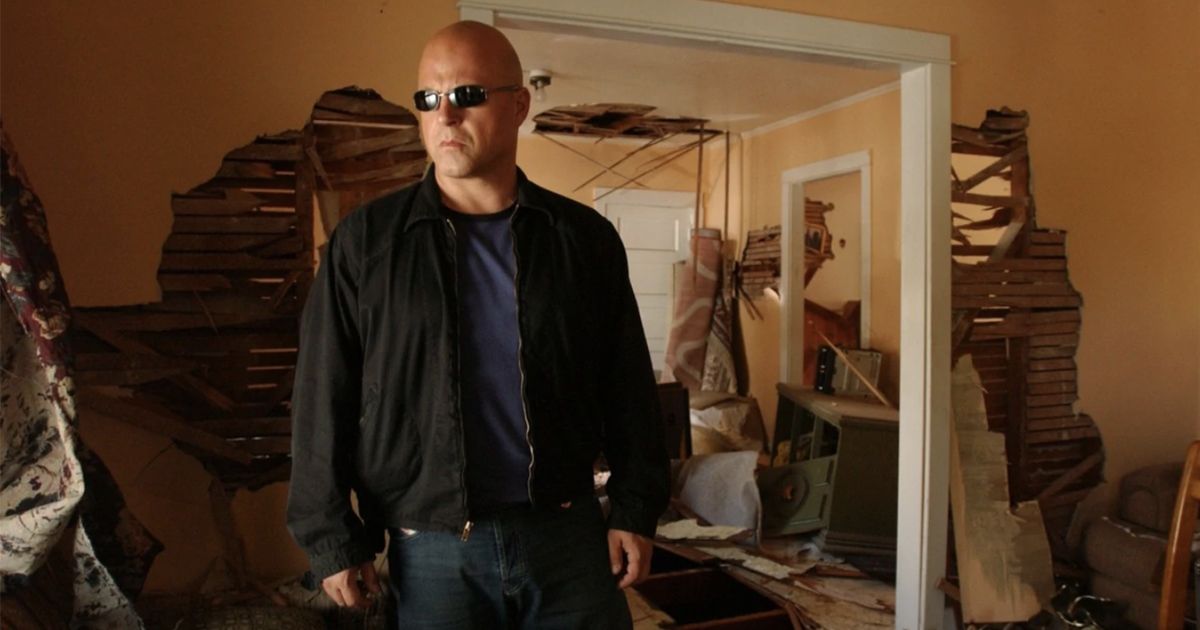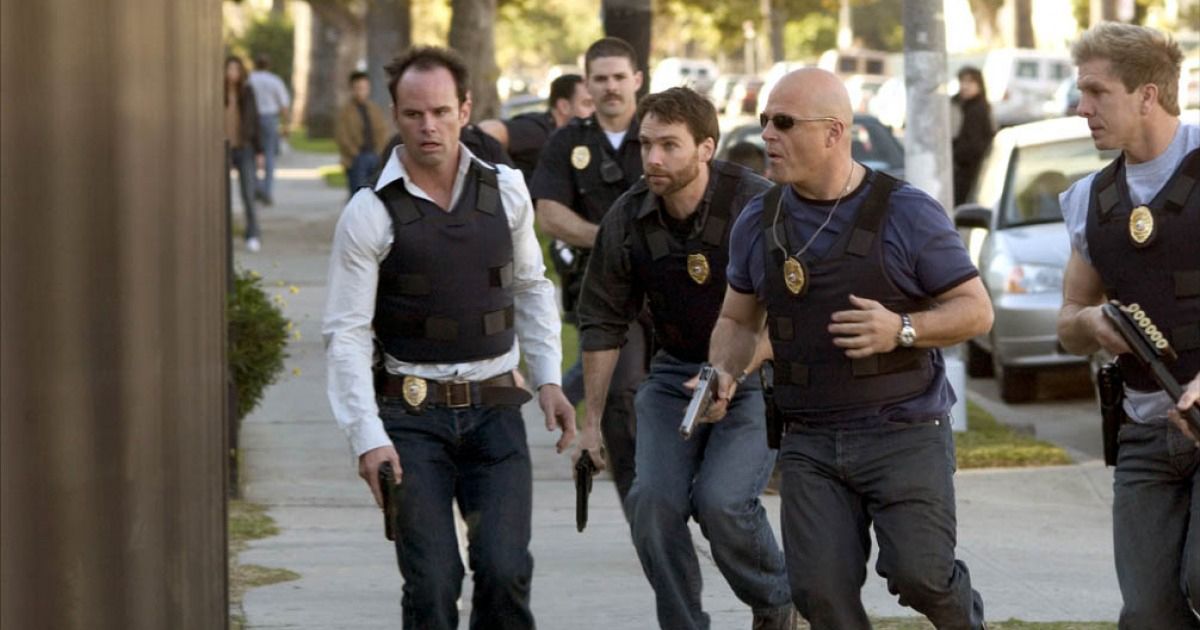The iconic show Breaking Bad became so acclaimed that it was widely regarded as being the one crime drama that changed the face of TV. However, for those audiences who were paying attention to the period just before it started, it was actually another show which deserved that reputation more. That show was The Shield, a gritty and violent cop drama that set new standards and redefined television.
It began back in March 2002, joining FX’s lineup at a time when the channel still mostly comprised wholesome family shows. It was in that arena that the show became a game changer. Breaking out of the mold of safe and dependable programming, it was a risk that paid off and paved the way for other networks to follow suit.
It’s now common parlance for TV shows to be every bit as dark and racy as movies can get. Let’s look back at why The Shield was the show which sparked the television revolution that made this possible.
The Premise of the Crime Drama
Essentially a crime drama, The Shield ran for seven seasons between 2002 and 2008. It’s original marketing campaign saw it advertised with the title Rampart. The reference was aimed at the infamous real-life LAPD ‘Rampart Division’ scandal that revolved around the department’s specialized anti-gang task team known as the Community Resources Against Street Hoodlums (CRASH) Unit.
The scandal became one of the largest police corruption and misconduct cases, with 70 officers implicated in serious allegations ranging from bribery to unprovoked shootings. The sheer breadth and shocking nature of the scandal formed a loose basis for the premise behind The Shield.
It starred Michael Chiklis in an incredible lead role as the corrupt and brutal commander of a small anti-gang unit of the LAPD. Largely showcasing the toxic, violent, and highly corrupt nature of the unit, the show’s themes and how it handled them set it apart from most other shows of its day. From the very first episode it was shocking, pulling no punches in its bare bones brutality.
How It Changed Television
The Shield provided a direct shift for FX in the way it pushed boundaries and drastically upped the ante when it came to the grittiness of its programming. While networks like Showtime and HBO had long since carved out reputations as boundary pushers with shows like The Sopranos and Oz, for cable channels like FX, safety was more their speed.
The Shield changed that, since it was tagged with a TV-MA (mature audiences only) rating, and deserved it: the show heavily featured graphic violence, strong language, sexual content, and even some mild nudity. This unabashed commitment to darker themes that naturally fit its context gave the show an edgy appeal. However, there was other aspects that cemented its reputation.
Given the fact that it was based on a real-life police scandal, this gave it plenty of added spice. With characters that were often deplorable, The Shield provided a refreshing take that departed from the same old TV tropes and linear formats with clear distinctions between good and evil. It was in the gray, with its complex characters and blurry lines between morality, that it also set itself apart from other shows.
It Still Had Deep Substance
Shows like The Shield took risks and helped TV evolve in the process. Back then, there was no certainty that audiences would take to its edginess at all, let alone that it would go on to be a success. However, despite being a risk, it soon proved itself as a beacon for other shows to follow suit. Through its boldness, The Shield’s inadvertent achievement was how it signaled that television was ready to accept more provocative shows on cable.
However, its mature aspects, raciness, and the seriousness of its core tropes weren’t the only reason it gained attention and set new standards. Even now, all these years later, when provocative shows are everywhere, and come with ever-increasing levels of shock value, what remains a factor for success is still whether there’s also a quality story to go with them.
What we’ve learned from modern risqué shows like Euphoria and The Idol is that shock value doesn’t equal acclaim, or even popularity, for that matter. Euphoria is often criticized for being overly raunchy and even dangerous in the way it indirectly glorifies drug culture and extreme promiscuity among high-school-age characters. Reviewers like Samuel Getachew of Vogue point out the disparity between its racy themes and how it chooses to handle them.
”Perhaps the only character who truly faces the consequences for her vices is Rue; the other characters repeatedly endanger themselves and others and yet miraculously continue to avoid major catastrophe or even parental intervention. They dance through morally and legally dubious scenarios to a theatrical soundtrack and emerge mostly unscathed and always flawlessly groomed, episode after episode. While it may have been intended to serve as a warning, Euphoria often feels more like an instructional tutorial or a road map, one that sensationalizes its subject matter while neglecting to fully disclaim its risks and hazards.”
On the other hand, The Idol, which was another stark example of how provocative TV shows often are now, was canceled after just one season. This was despite it featuring the novelty of hugely popular musicians, The Weeknd and Jennie of BlackPink. With a paltry 18% rating, many reviewers bemoaned how it seemingly cared more about highlighting sexual content than having any actual depth.
The Shield, by contrast, was a show that highlighted such dark themes without glorifying them, managing to thread the thin line between engaging audiences in a morally gray story, without reveling in it or painting things as necessarily good or bad.
The Quality in the Writing
While The Shield may have been responsible for popularizing a more edgy era for TV that’s continued till today, it did so with sublime quality to back up its provocative side. The show was well-made, well cast, and featured plot lines and performances that also made it riveting.
Fantastically rated season after season, The Shield often found itself being mentioned in lists of the best shows of all time. Unsurprisingly, it was nominated for and won prestigious awards on a regular basis. Among these were a Primetime Emmy and a Golden Globe for Michael Chiklis. As the show’s lead, Chiklis was an immense power on screen, and made a name for himself with his performance as Vic Mackey — but he was also far from the only strong cast member.
Aside from reinventing TV with its grit and edginess, The Shield also broke the mold for the number of big-name stars and acclaimed actors who took on lengthy roles at various stages of the show. Among these, the show featured the likes of Glenn Close, Michael Peña, Anthony Anderson, and Forest Whitaker.
With amazing production value from every episode, a fantastic supporting cast, and other major stars featuring prominently, Michael Chiklis brought it all together. His character represented one that featured among the very first truly great antiheroes of the neo-noir TV series that the show helped kick-start for the next generation of audiences.
The likes of Walter White in Breaking Bad and Bobby Axelrod from Billions would later follow in Vic Mackey’s footsteps as provocative main characters who never quite fit into typical tropes. If you’ve never seen it before, The Shield remains a great show and spawned a small media franchise that included a comic and even a video game. With any luck, there may yet also be a possible revival or reboot one day too.
The Shield isn’t the only excellent crime drama out there — here is a video on underrated Japanese crime dramas:
This story originally appeared on Movieweb



